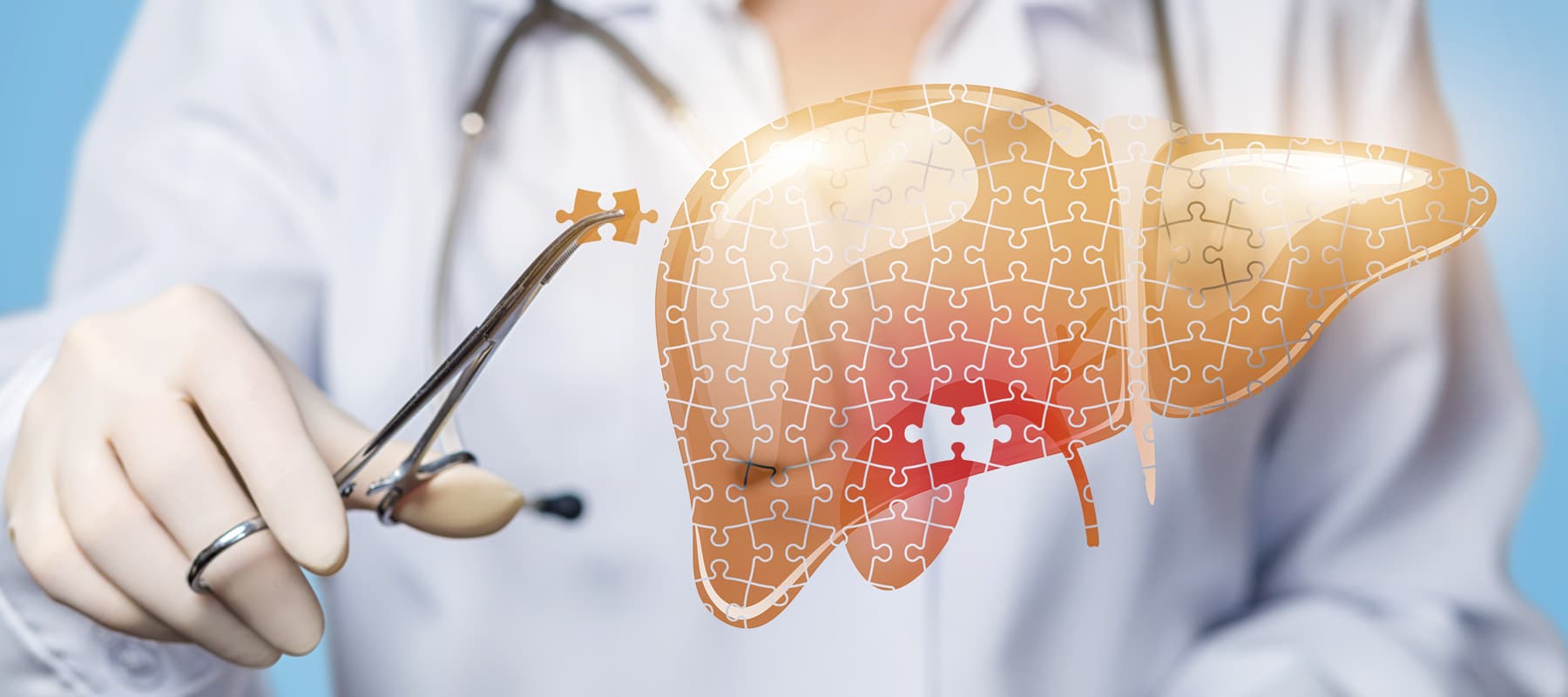
What Will It Take to Reverse Fibrosis in Patients with Advanced MASH?
Glucagon-like peptide-1 (GLP-1) receptor agonists have gained attention as potential treatments for a variety of obesity-related diseases, including metabolic dysfunction-associated steatohepatitis (MASH) and chronic kidney disease. While these drugs are not yet approved for these conditions, their influence on the metabolic system makes them worthy of study. However, the metabolic system is complex, involving numerous pathways that contribute to these diseases. In the case of MASH, the fibroblast growth factor 21 (FGF21) signaling pathway is particularly significant.
MASH, formerly known as nonalcoholic steatohepatitis (NASH), is a chronic and progressive liver disease characterized by fat accumulation, inflammation, and ultimately fibrosis—the scarring that results from the liver’s attempts to repair damaged cells. This liver damage can progress to more severe complications, including cirrhosis, liver failure and liver cancer.1 The number of people impacted by MASH is staggering, and the incidence is steadily increasing. Hepatologists report that they now see young and middle-aged people —those in their 30s and 40s—who have developed advanced liver disease. By 2030, an estimated2 27 million people in the United States will have MASH, of whom 7.94 million will have advanced fibrosis (stages F3/F4).
Given this urgent health concern, innovative treatments for MASH are critically needed, especially therapies that can reverse liver fibrosis in late-stage patients to prevent progression to cirrhosis, decompensation, or liver cancer. Active medical intervention is essential for patients with advanced fibrosis3. Experts suggest that potent anti-fibrotic agents like FGF21 analogs could offer significant benefits. One such agent is pegozafermin, a novel investigational treatment currently in Phase 3 clinical development for patients with MASH and MASH-related cirrhosis.
Pegozafermin: Encouraging results showing the reversal of fibrosis in a Phase 2 study
We believe pegozafermin addresses the drivers of MASH occurring both within the liver—including addressing fibrosis, as well as systemically. As a specifically engineered glycoPEGylated analog of FGF21, it prolongs the broad metabolic effects of this endogenous hormone. The effects include regulating energy expenditure, improving glucose and lipid metabolism, and reducing fat within the liver—all crucial factors in managing MASH.
In our Phase 2b ENLIVEN trial with biopsy-determined F2/F3 fibrosis due to MASH, pegozafermin demonstrated significant results. Patients receiving pegozafermin achieved improvements in key non-invasive markers of fibrosis, steatosis and inflammation. After only 24 weeks of treatment, pegozafermin-treated patients achieved highly statistically significant fibrosis regression without worsening of MASH on biopsy, meeting the primary endpoint in the study. Additionally, pegozafermin demonstrated additive benefits when used alongside background GLP-1-based therapies, leading to sustained improvements in liver health markers.
An important aspect of pegozafermin’s potential profile is its favorable safety and tolerability, which is crucial for a condition that may require long-term treatment. Good tolerability enhances patient adherence, leading to better clinical outcomes. Furthermore, we are developing pegozafermin for self-administration as a single subcutaneous injection either weekly or every other week. This convenience is particularly beneficial for patients who may already be managing multiple medications due to co-existing health conditions.
Advancing to Phase 3 clinical trials
Building on the promising results from the Phase 2b trial, we advanced pegozafermin into two global Phase 3 trials, both with potential pathways to accelerated approval, followed by a potential for full approval:
- ENLIGHTEN-Fibrosis: A randomized, double-blind, placebo-controlled study evaluating pegozafermin in patients with MASH and fibrosis (F2-F3).
- ENLIGHTEN-Cirrhosis: A similar study focusing on MASH patients with compensated cirrhosis (F4).
These registration-enabling trials aim to further assess the efficacy and safety of pegozafermin, bringing it one step closer to potential approval and availability for patients in need.
Advancing a potential mainstay treatment for MASH
Given the complexity and multifactorial nature of advanced MASH, a comprehensive treatment approach is necessary. This includes therapies that are not only effective but also tolerable and convenient, with the potential to combine with other therapies. Reversing fibrosis is a critical goal to reduce the risk of liver-related events and overall mortality as the disease progresses.
We believe that pegozafermin, if approved, could become a best-in-class FGF21 analog therapy and a cornerstone treatment for patients with advanced fibrosis and cirrhosis due to MASH. Its potent anti-fibrotic effects, metabolic benefits, favorable safety profile, and user-friendly dosing schedule position it as a promising solution to this pressing medical challenge.
Our commitment at 89bio is unwavering, as we strive to bring this innovative potential treatment to the millions of patients affected by MASH, offering hope for improved outcomes and quality of life.
1Benedict M, Zhang X. Non-alcoholic fatty liver disease: an expanded review. World J Hepatol. 2017; 9:715-732. doi:10.4254/wjh.v9.i16.715.
2Estes C, Razavi H, Loomba R, Younossi Z, Sanyal AJ. Modeling the epidemic of nonalcoholic fatty liver disease demonstrates an exponential increase in burden of disease. Hepatology. 2018;67(1):123-133. doi:10.1002/hep.29466.
3Dajani A, AbuHammour A. Treatment of nonalcoholic fatty liver disease: Where do we stand? an overview. Saudi J Gastroenterol. 2016;22(2):91-105. doi:10.4103/1319-3767.178527.